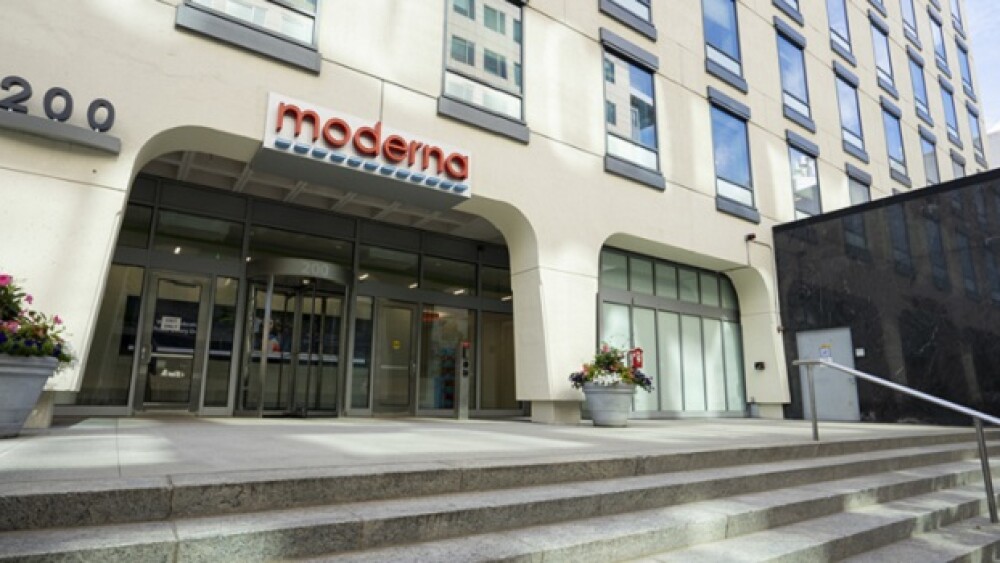Kintara Therapeutics, Inc. (Nasdaq: KTRA) (“Kintara” or the “Company”), a biopharmaceutical company focused on the development of new solid tumor cancer therapies, today announced it has enrolled the final patient in the recurrent arm of its ongoing Phase 2 clinical study of VAL-083
|
SAN DIEGO, Feb. 17, 2021 /PRNewswire/ -- Kintara Therapeutics, Inc. (Nasdaq: KTRA) ("Kintara" or the "Company"), a biopharmaceutical company focused on the development of new solid tumor cancer therapies, today announced it has enrolled the final patient in the recurrent arm of its ongoing Phase 2 clinical study of VAL-083 being conducted at the MD Anderson Cancer Center (MD Anderson). The recurrent arm of the study addresses patients suffering from glioblastoma multiforme (GBM) who have been pre-treated with temozolomide (TMZ) prior to disease recurrence. The trial was designed to enroll up to 83 patients (35 patients at 40 mg/m2/day and 48 patients at 30mg/m2/day) to determine whether treatment with VAL-083 improves overall survival. "Given the urgent need for improved treatment options for this deadly disease, we are pleased to have reached the very important milestone of full enrollment in the recurrent arm of this Phase 2 clinical study," commented Saiid Zarrabian, Kintara's Chief Executive Officer. "We would like to thank our patients, their families, and MD Anderson for their participation and continued support for this arm of the trial and of course, for our adjuvant study arm as well. Moving forward, we anticipate reporting topline results from the recurrent arm in the second quarter of calendar 2021." The Phase 2 trial is an open-label, two-arm, biomarker-driven study testing VAL-083 in GBM patients who have an unmethylated promoter of the methylguanine DNA-methyltransferase (MGMT) gene. Efficacy is being measured based on overall survival and progression-free survival. In addition to the recurrent arm, there is a second trial arm that is enrolling up to 36 newly-diagnosed patients who have undergone surgery and chemoradiation with TMZ, and who are receiving VAL-083 in place of standard of care TMZ for adjuvant therapy. In November 2020, the Company provided a clinical update on both arms of the study. For the recurrent arm, median overall survival (mOS) for the 77 efficacy evaluable patients who completed at least one cycle of treatment was 7.6 months (confidence interval: CI 6.4-10.6 months). Additionally, for the 43 efficacy evaluable patients initially receiving the 30 mg/m2/day dose that is being evaluated in the Global Coalition for Adaptive Research (GCAR) GBM AGILE (Glioblastoma Adaptive Global Innovative Learning Environment) registrational study, mOS was 8.5 months (CI 6.8-13.7 months). In the adjuvant therapy arm of the study, median progression-free survival (PFS) was 10.0 months (CI 7.6-10.8). Consistent with prior studies, myelosuppression was the most common adverse event with VAL-083 in both the recurrent GBM and adjuvant treatment setting. In the 30 mg/m2/day starting dose cohort (the planned dose for the GBM AGILE pivotal study) three subjects experienced a serious adverse event (SAE) possibly related to VAL-083 in the recurrent group and one patient experienced a possibly drug-related SAE in the adjuvant group. VAL-083 is a "first-in-class," small molecule bifunctional alkylating agent that crosses the blood-brain barrier. VAL-083 is independent of the MGMT resistance mechanism and has been assessed in over 40 Phase 1 and Phase 2 clinical trials in multiple indications sponsored by the U.S. National Cancer Institute (NCI). Published pre-clinical and clinical data indicate that VAL-083 has activity against a range of tumor types, including lung, brain, cervical, ovarian tumors and hematologic (blood) cancers. VAL-083 has been granted Orphan Drug Designation for GBM by the FDA and EMA and has also been granted Orphan Drug Designations for medulloblastoma and ovarian cancer by the FDA. In addition, the FDA has granted Fast Track Designation for VAL-083 in recurrent GBM. VAL-083 is approved as a cancer chemotherapeutic in China for the treatment of chronic myelogenous leukemia and lung cancer. VAL-083 has not been approved for any indications outside of China. About Kintara VAL-083 is a "first-in-class," small-molecule chemotherapeutic with a novel mechanism of action that has demonstrated clinical activity against a range of cancers, including central nervous system, ovarian and other solid tumors (e.g., NSCLC, bladder cancer, head and neck) in U.S. clinical trials sponsored by the NCI. Based on Kintara's internal research programs and these prior NCI-sponsored clinical studies, Kintara is currently conducting clinical trials to support the development and commercialization of VAL-083 in GBM. REM-001 is a proprietary, late-stage photodynamic therapy platform that holds promise as a localized cutaneous, or visceral, tumor treatment as well as in other potential indications. REM-001 therapy has been previously studied in four Phase 2/3 clinical trials in patients with CMBC who had previously received chemotherapy and/or failed radiation therapy. With clinical efficacy of 80% complete responses of CMBC evaluable lesions and an existing robust safety database of approximately 1,100 patients across multiple indications, Kintara is advancing the REM-001 CMBC program to late-stage pivotal testing. For more information, please visit www.kintara.com or follow us on Twitter at @Kintara_Thera, Facebook and Linkedin. Safe Harbor Statement CONTACTS Media
SOURCE Kintara Therapeutics |
||
Company Codes: NASDAQ-NMS:KTRA |





